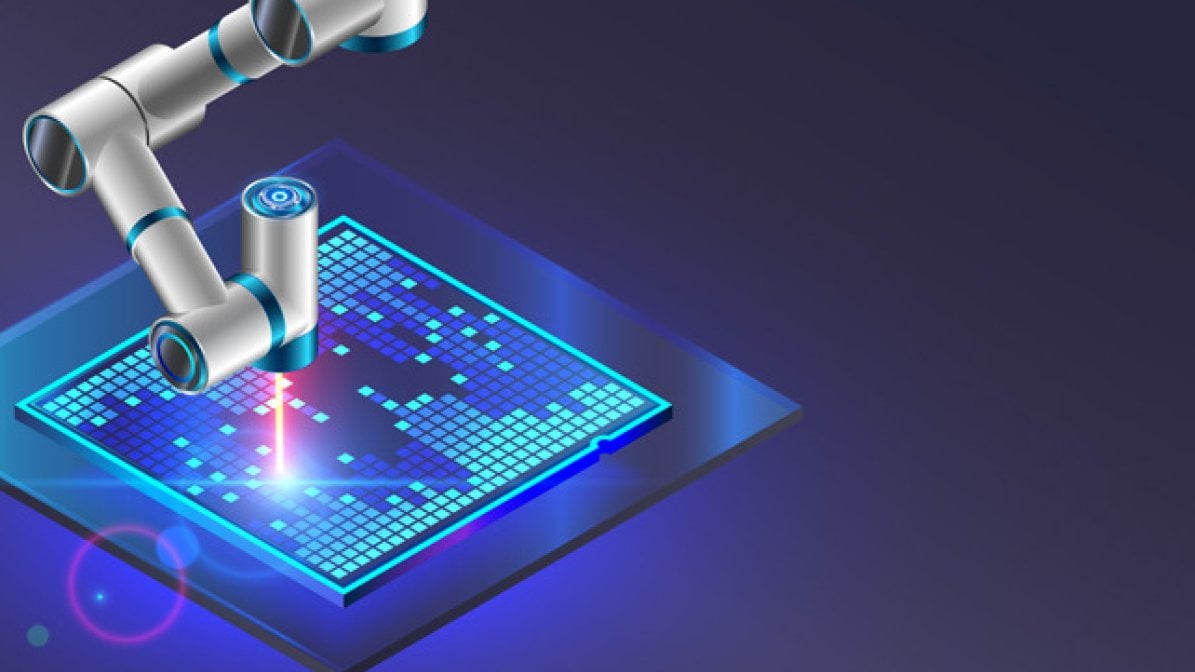In today's technology-driven world, the demand for skilled computer scientists continues to grow across various industries. Studying computer science equips you with technical skills, from programming languages to algorithm design, opening a range of career opportunities. Whether you see yourself developing cutting-edge software applications, optimising complex algorithms, or pioneering advancements in artificial intelligence, computer science offers limitless possibilities.
It opens doors to high-growth sectors such as cybersecurity, data science, and machine learning, and the skills you’ll learn make you well-suited for roles in finance, healthcare, entertainment, and beyond. With the potential to shape the future of technology, studying computer science puts you in the middle of an ever-expanding field, ensuring exciting future career growth.
Label
Why computer science?
The impact you could make
- Help people work, learn and communicate better
- Play a key role in solving global problems, including climate change
- Develop technologies that can drive advances and even take us to space
What you might study
- Algorithms and data structures
- Database systems
- Mathematical principles
- Programming languages and software development
- Web and mobile apps
- Cyber security
- Artificial intelligence
Chat to a current computing student
Chat to a current computer science student using UniBuddy.
Some conversation starters for you:- Ask which modules they really enjoyed.
- Find out how easy it was for them to make friends on their course.
- Do they have any tips on your personal statement?
- Did they do anything to prep for uni before they went?
- Are there books, podcasts or YouTube channels they would recommend?
Higher Technical Qualifications
Higher Technical Qualifications
Higher Technical Qualifications (HTQs) are an alternative to apprenticeships or degrees.
They have been specifically designed with employers to ensure learners get the skills that employers have said they need. They are a quicker and cheaper alternative to a degree and can lead to higher wages early in a career.
Example assignments and projects
Example module
Example project
Subjects it's useful to have studied first
Some computer science courses or apprenticeships will have requirements for previous qualifications in certain subjects. Entry requirements vary, so always check with the provider.Maths
Science
Physics
Information technology
Hard skills you'll develop
- Understand all the common programming languages
- Work with data structures
- Knowledge of algorithms
- Understand cybersecurity principles
Soft skills you'll develop
- Critical thinking
- Problem-solving attitude
- Adaptability
- Attention to detail
Open Mic: Computer Science
So you want to study computer science?
Year 12 student Katie speaks to Holly Boothroyd, a Software Engineer at Microsoft.
Careers: Where can it take you?
Find out more about your career prospects from studying computer science.
The following information is based on a typical web designer role.
Available jobs
Average salary
Career options
Software development
Design
Analysis

What is... a nanotechnologist?
Nope, we were stumped too. It’s someone who works with incredibly small things to develop new materials, equipment, drugs or tools. Nanotechnologists do their work with remarkable precision and control as they design experiments to work out uses for these tiny elements, from new technology to medical procedures. Studying computer science puts you at the forefront of innovation that is not only shaping the future of technology but also paving the way for solutions to some of society's most pressing issues.
Find your ideal career
Take our careers quiz to find your ideal job matched to your personality type.Getting in: Entry requirements
Find out more about what you'll need to study computer science at university or as an apprenticeship.
Average requirements for undergraduate degrees
Entry requirements differ between university and course, but this should give you a guide to what is usually expected from computer science applicants
Uni entry requirements
A levels
Scottish Highers
Vocational

Digital and IT apprenticeships
Check out our industry guide to help you decide if an apprenticeship might be the right choice for you.Specific entry requirements vary considerably, depending on the focus of the course. For example, a very theoretical course may require A level Mathematics, whereas Business IT programmes would probably not ask for any science background beyond GCSE. Few courses specify A level Computing or equivalent.
Other subjects you may be interested in
Considering an apprenticeship?
Applying for an apprenticeship is just like applying for a normal job. Here’s what you need to know:
-
1
Deadline
Apprenticeships don't follow the same deadlines as applying to uni, the deadline is down to the employer. -
2
Where to apply
You apply directly through the employer. -
3
No limits
You're not restricted to one apprenticeship application; you can do as many as you like. -
4
Apply to university and apprenticeships
There's nothing stopping you applying to university through UCAS, while also applying for apprenticeship vacancies. -
5
Find out more
Read our guide to IT and digital apprenticeships.
Let's talk about... IT and digital apprenticeships
Digital and IT apprenticeships
Watch our guide to digital and IT apprenticeships, hosted by Katie Thistleton. Hear from apprentices and employers.

Apprenticeship vacancies
Check out live apprenticeship vacancies in information and communication technology.Explore further
Go deeper into topics around computer science with the following.
-
1
Try CodeAcademy
Learn to code for free. -
2
AppMaster
Watch YouTube videos of how to develop apps without code. -
3
WIRED podcasts
Find out about the latest way tech is changing our lives.
Application advice
Whether it's personal statement tips or what to write in a cover letter for an apprenticeship application, our advice will help you get ahead in your computer science journey.
Label
Skills and experience
Skills, experiences and interests to mention
- Are you good at problem solving? Do you enjoy playing games like Minecraft?
- Have you ever coded something? Maybe you’ve used Raspberry Pi or have done CodeClub
- Can you confidently discuss the debate around happens to our personal information online?
- Could you talk about the benefits of AI and how it will change the world of work?
- Teamwork and communication is really important in this field. Have you ever been part of a team? Maybe a hackathon or even a sports team? Have you ever organised an event at school?





















